Cryptocurrency is all over the news these days, especially Bitcoin. With some commentators likening it to the Gold Rush, there is considerable interest in the emerging asset class of digital assets, and in cryptocurrency in particular. As a financial advisor, you’re likely getting more and more questions from clients who wonder whether it’s time to buy in. If you’re finding yourself feeling a bit uncomfortable with the discussion, you’re in the right place.
At Arbor Digital, our mission is to be a bridge for Registered Investment Advisors and their clients to the world of digital assets. We know that, traditionally, many financial advisors have eschewed conversations with clients about cryptocurrency. Maybe you’re feeling as if you just don’t know enough to answer your clients’ questions, or maybe you’re of the mindset that digital assets are more gamble than investment. Either way, cryptocurrency is having a moment right now, which might be leaving you in a quandary about how to discuss this complex topic with interested clients.
If you find yourself in this predicament, the below framework should provide a helpful guide for your discussions with your clients. In our experience, many people have the same questions, so we’ll focus on four of them here:
- How is cryptocurrency different from other types of investments?
- What is blockchain and how does it work?
- What are the potential benefits and risks of this asset class?
- How does an investor know if cryptocurrency makes sense for their portfolio?
If you’re ready to start a dialogue with your clients about the emerging digital asset class, these four topics are a helpful place to begin.
Cryptocurrency Questions and Answers (for Your Financial Clients)
-
How is Cryptocurrency Different from Other Types of Investments?
Since Bitcoin is the most popular cryptocurrency at the moment, we’ll use it as our basis for this discussion. It’s the world’s first completely decentralized, open-source, and peer-to-peer digital currency. Until Bitcoin’s invention in 2008, all online transactions required a trusted third-party intermediary (think PayPal or Mastercard). Intermediaries were required so that digital money could not be spent twice. The technology behind Bitcoin is revolutionary because it solved the double-spending problem without the use of a third party such as a central bank. So, when you invest in Bitcoin, it’s really an investment in the blockchain technology behind it.
LEARN MORE >>>
-
What is Blockchain and How Does it Work?
By its simplest definition, blockchain is a decentralized, distributed ledger technology that records the provenance of a digital asset. This technology makes the history of any digital asset unalterable and transparent. You can think of it a bit like a Google doc. When you share one, it is distributed – rather than copied or transferred – and this means everyone has access to the document at the same time. Modifications can be made and recorded in real-time, even with more than one user in the document at once. Ostensibly, a blockchain is an ever-growing list of records that are linked together using cryptography. Each new record, or block, contains information about the previous block and so the blocks form a sort of chain. Blockchains can’t be modified once they have been recorded, and their real-time access and transparency to the public make them a revolutionary, tamper-proof way to do business.
In addition to understanding blocks, your clients may have questions about cryptocurrency mining. Using the example of Bitcoin once again, mining is the process by which new Bitcoins are entered into circulation by being recorded in the blockchain – Bitcoin’s global public ledger. Mining requires special hardware and computing power.
-
What are the Potential Benefits and Risks of Digital Assets?
All investments inherently carry risk – and the potential for reward – and digital assets like cryptocurrency are no different. Of course, as with any investment, there are pros and cons investors should be aware of.
One of the most obvious disadvantages of cryptocurrency is that it is complex and can be difficult to understand. For your clients who are not tech-savvy, the idea of a decentralized financial system stored via blockchain can be a challenge to comprehend. Additionally, as most investors understand from the news media, cryptocurrency has experienced some very dramatic market fluctuations – more so than other asset classes – making them higher-risk investments. Finally, as we have seen happen over the years with many emerging technologies, there are cryptocurrency scammers on the prowl looking to take advantage of the complexity of the technology and the naivete of many investors.
Of course, there are distinct advantages to investing in cryptocurrency, too. Due to its unparalleled transparency, blockchain technology isn’t going anywhere anytime soon. Although the use of cryptocurrency is anonymous, transactions themselves are all stored in an open ledger. With so much interest in a more transparent banking system, there is tremendous potential for growth here, which could be a boon to investors’ portfolios. Indeed, it’s the reason that, despite its volatility, Bitcoin’s value has remained on an overall upward trajectory. Cryptocurrency can also be accessed at any time, so you don’t have to rely on a third-party entity controlling your money or its value, which is an attractive feature for many.
-
How Does an Investor Know if Cryptocurrency Makes Sense for Their Portfolio?
As discussed above, cryptocurrency is a volatile investment. So, it’s not optimal for investors who want to use it to store value. However, those with a greater risk appetite and longer time horizons (at least 5-7 years) may be able to enjoy the benefits of this emerging asset class poised for exponential growth. Digital assets, including cryptocurrency, can also be a good match for clients interested in early-stage venture capital investing and startup investing
Of course, smart investments are made with diversification in mind. Not only should investors maintain portfolios with more traditional investments, they should also spread their cryptocurrency investments across several different types.

Final Thoughts: Cryptocurrency Questions and Answers
If you’re feeling hesitant to begin discussing cryptocurrency or other digital asset investments with your clients, we can help. At Arbor Digital, we’ve been navigating this space for a decade, and we believe in the disruptive power of blockchain technology to improve the financial system.
If you’d like to responsibly advise your clients about adding digital assets to their portfolios, schedule a conversation with us today. We can help you get started engaging with digital assets through our True Digital Asset SMA™.




